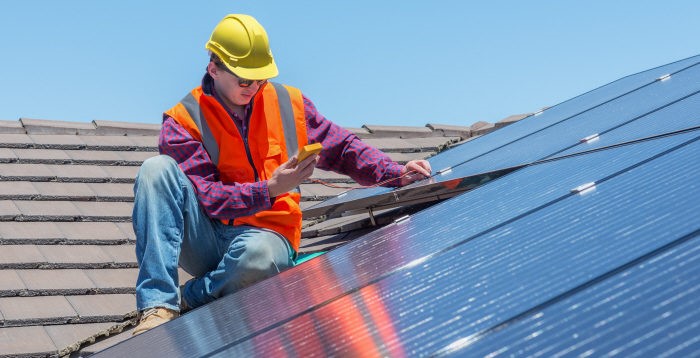The idea of producing your own electricity and not having to worry as much about rising utility bills is something that most householders are interested in. But is having solar panels installed the right solution for you?

As with any home improvement, there are advantages and disadvantages which need to be considered before a decision can be made. Here are just a few things to take note of before you decide if Solar Panels are for you:
The Advantages of Solar Panels
- The main reason that people decide to have solar panels installed is to reduce the electricity bill of the property. The quantity of power you produce will depend on a number of factors, including your location and the size of your array, as well as whether you opt for storage or not. Get it right, however, and you could make significant savings.
- You can take advantage of the Feed in Tariff. This is a Government backed scheme administered by Ofgem which pays you for the amount of electricity you produce. Since 2016, this has reduced dramatically when subsidies were cut for homes installing solar panels, but it still represents a decent payback.
- If you produce surplus electricity, in other words more than you use, you can sell that back to the grid. This can provide an additional return on investment and certainly makes solar panel installation very attractive for larger arrays.
- We all need to reduce our carbon footprint and every household should being doing its bit. Having solar panels installed contributes to reducing your personal carbon emission level.
- Solar panels are quite easy to maintain and should have a lifetime of about 20 to 25 years which makes them a solid investment for the future.
The Disadvantages of Solar Panels
- There is a large initial outlay. For a medium to large size array it could cost you anywhere between £5,000 and £8,000. The more panels you have on your roof, however, the better return you should receive as you will produce more electricity.
- Some companies offer ‘free’ solar panels where you pay nothing for the installation but hand over the right to the Feed in Tariff as well as any profit made from selling electricity back to the grid to the company. The trouble is that this is usually involves a long-term contract which can impact you if you decide to sell your home in the future.
- There’s some dispute over whether solar panels increase the value of a home. According to research carried out by Which?, over two-thirds of estate agents say it doesn’t while some 17% say that it has a negative impact.
- The location and positioning of your home will be a factor in how efficient your panels are. Ideally, you need a south facing roof that slopes at an angle of around 45° to catch a good amount of the sun.
- If you are looking to maximise your electricity production by introducing storage, the cost of batteries is going to add a significant expense onto your installation bill. While the technology is rapidly developing, it’s not yet reached the point where mass production is bringing the price down. Installing a Tesla Powerwall 2, for example, could cost in excess of £5,000.
In summary solar panels can be a good investment, deciding if it is a viable option for you will come down to analysing the factors above versus your personal circumstances.






